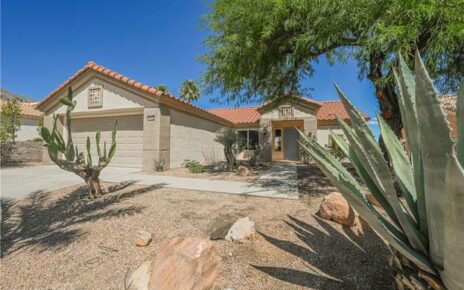Clemson, a beautiful Upstate city in South Carolina, has a bustling culture, beautiful scenery, and a growing real estate market. However, property tax rates shape homeownership in this attractive city, as they do in many others. Property tax rates in Clemson vary widely depending on neighborhood, school district, and other factors, reflecting the region’s unique economic and demographic makeup. Property taxes affect homeowners’ immediate finances and the long-term viability and appeal of living in this desirable South Carolina locale. If you need help understanding property tax rates in Clemson, you can approach Clemson real estate agent Daniel Sanders for guidance. We’ll examine how Clemson’s property tax rates affect homeowners’ finances, property values, and the city’s appeal as a home in the following sections.
Clemson real estate
Clemson, a lovely town in northeastern South Carolina, is known for its robust real estate market. Since this city is home to Clemson University, the real estate market caters to academics. The town has everything from charming single-family houses in established areas to modern condos and apartments for students and young professionals. The university’s presence drives rental property demand, making real estate investment appealing. Clemson’s lovely downtown district, with its historic residences, local businesses, and welcoming attitude, boosts real estate value. Lake Hartwell and the surrounding natural landscapes offer beachfront residences and peaceful, rural locations for individuals wanting a more relaxing lifestyle, benefiting Clemson’s real estate market. The town’s strong sense of community and prominence as a college town with cultural and sporting events make it desirable for homeowners and investors.
Homes for sale in Clemson Real Estate
Clemson’s real estate market has several possibilities for different tastes and purposes. Single-family houses in established neighborhoods with tree-lined streets and a sense of community are ideal for families and suburbanites. These homes range from classic Southern to modern and renovated. In recent years, eco-friendly and energy-efficient homes have become popular, reflecting community sustainability. Clemson offers condominiums and townhouses for low-maintenance living or investment. The proximity to Clemson University makes these properties popular with students, professors, and urbanites. Another attraction is Lake Hartwell waterfront residences, which offer beautiful views and direct lake access for boating and recreation. Potential buyers in Clemson, South Carolina, can find a pleasant family home, an investment property, or a vacation escape from the wide range of properties for sale.
The impact of property tax rates on homeowners
Clemson’s property taxes can significantly affect local homeowners. These rates can impact homeowners’ short- and long-term finances.
- Increased monthly expenses: A higher property tax rate equals greater monthly housing costs because these taxes are usually included in mortgage payments. Homeowners must budget for these expenses, and rising property taxes can burden them more.
- Homeownership affordability: Higher property taxes can deter budget-constrained buyers from buying properties in the neighborhood. Conversely, decreased property taxes make homeownership more appealing.
- Property value and equity: Property tax rates can impact homeowners’ equity in the long term. As property appreciates, property tax expenses may also escalate. Since property taxes take up a large amount of homeowners’ monthly payments, this might hinder equity growth.
- Desirability: High property taxes might affect a neighborhood’s appeal to purchasers. Some investors may avoid high property taxes, while others may choose lower taxes.
- Budget Planning: Property taxes vary depending on local government choices, assessments, and market conditions, so homeowners must carefully manage their budgets. Unexpected property tax rises might disrupt homeowners’ financial plans.





